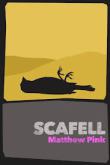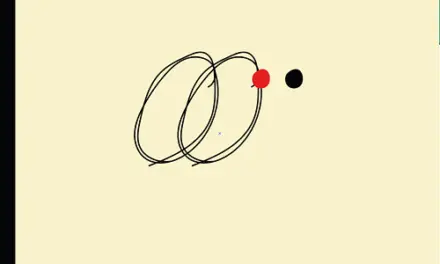In all manner of creative endeavours from music to cooking, fusion is all the rage. So why not in fiction too? First-time novelist Matthew Pink recently published Scafell, which takes some of the tone and trappings of crime noir – murder, rain, high emotions and murky secrets – and takes them off on holiday to the Lake District.
 It might seem a striking prospect but Pink, himself a devotee of the genre, was inspired by other crime writers who depict rural landscapes, and less obviously ‘urban’ settings. “Noir is, generically speaking, of the night and of the city, that’s for sure,” he asserts. “The plays with light and shadow and that idea of characters living in a liminal world certainly goes perfectly with an urban shell and the spaces and structures it provides. There are hundreds of examples of that particular combination working harmoniously – from Robert Towne’s L.A, to Jean-Claude Izzo’s Marseilles to James Lee Burke’s New Orleans, to name but three. But I wanted to try something different and turn a rural landscape into one of these liminal worlds.”
It might seem a striking prospect but Pink, himself a devotee of the genre, was inspired by other crime writers who depict rural landscapes, and less obviously ‘urban’ settings. “Noir is, generically speaking, of the night and of the city, that’s for sure,” he asserts. “The plays with light and shadow and that idea of characters living in a liminal world certainly goes perfectly with an urban shell and the spaces and structures it provides. There are hundreds of examples of that particular combination working harmoniously – from Robert Towne’s L.A, to Jean-Claude Izzo’s Marseilles to James Lee Burke’s New Orleans, to name but three. But I wanted to try something different and turn a rural landscape into one of these liminal worlds.”
Pink knows the Lakes well, though his tale takes liberties with the exact geography of the area to create an curious, almost expressionistic version of it. “The Scandinavian writers use bleak landscapes a lot, but I’m not sure any make it heightened to the point of appearing hyper-real or ‘magic-realist’ like, say, Burke does to the Louisiana swamps.”
Many of his references here are from the world of cinema, rather than literature. It’s a particular passi on of Pink’s. Prior to writing Scafell he’d seen publication of some academic work about film. “For me, cinema is the richest medium because it blends all the others. I’m especially interested in how cinema uses sound and music. In Scafell I drew on various noir and crime films I’ve loved over the years for tone and atmosphere, from Aki Kaurismäki’s Ariel to the Coens’ Blood Simple and Fargo to Bong Joon-Ho’s Memories of Murder. That particular film gave me a starter’s map to begin the first few chapters with, actually. I also tried to structure the book as you might a screenplay, just filling it a little more, obviously.”
on of Pink’s. Prior to writing Scafell he’d seen publication of some academic work about film. “For me, cinema is the richest medium because it blends all the others. I’m especially interested in how cinema uses sound and music. In Scafell I drew on various noir and crime films I’ve loved over the years for tone and atmosphere, from Aki Kaurismäki’s Ariel to the Coens’ Blood Simple and Fargo to Bong Joon-Ho’s Memories of Murder. That particular film gave me a starter’s map to begin the first few chapters with, actually. I also tried to structure the book as you might a screenplay, just filling it a little more, obviously.”
Additionally, there are references throughout the novel to specific songs, intended to shape the reader’s impression of certain characters and scenes. Unsurprisingly, they point towards another major input during the writing process.
“Music is probably mankind’s greatest invention – if we can claim credit for it, that is. I need music to write to, to live with. It also somehow opens up thought patterns which might otherwise remain locked up. The music and the particular songs certainly play a crucial role and are plot markers in a way within the development of the story. They’re all deliberate choices. I’ll leave the reader to decide to what end, or if it works.”
Scafell has been published as an ebook, rather than a hard copy. Increasingly, it’s an attractive, accessible option to new authors, and Pink thinks this is an intriguing development.
“I’m a DIY type of person, so that element obviously appealed,” he says. “As for what it’s doing to the publishing industry, the literary canon and the canon-makers – I think you could say the cat is definitely among the pigeons. There’s a lot of shite out there for sure, but there’s also some gems which may otherwise have been smothered at birth.”
In the wake of encouraging responses to Scafell, he intends to write more tales of his oddball main character, Stephen ‘Sparky’ Markham.
“I’ve a trilogy in mind for this particular locale and set of characters. This first novel was an experiment and a way to teach myself how to do it in the first place. The second and third will free themselves from the shackles of convention a little more, I think, and go a little more out of the genre’s comfort zone.”
Interview by Andy Murray
Next week: Cathy Crabb reviews Scafell











